I witnessed the true nature of human greed that day, because everyone seemed to be on the dole. Once people realized what I was doing, it became a feeding frenzy. Suddenly everyone claimed to have given multiple months, even people who never gave at all. But I didn’t care. I was willing to go the distance.
By the time the bell rang, ending the school day, the feeding frenzy was over, and I had given away 123 years of my life. I told Frankie this when I got to the hospital that afternoon. I thought he’d call me an idiot like he always does, but instead he was very impressed.
“You had an Initial Public Offering!” he told me. Frankie, who was on the fast track to being a stockbroker, knew all about these things. “A successful IPO means that people believe your life is worth a lot more than it actually is.” And then he added, “You’d better live up to expectations, though, otherwise you go bankrupt and gotta file chapter eleven.”
And since chapter eleven was pretty annoying, I’d just as soon avoid it.
Of all the conversations I had that day, the most interesting was with Skaterdud, who was skating up and down my street when I got home from school. As it turns out, things were not well in the world of Dud.
“Bad news, Antsy. I’m reeling from the blow, man, reeling. I knew I had to talk to you, because not everyone couldn’t understand like you, hear me?”
“So what happened?”
“The fortune-teller—the one who told me about my burial at sea. Turns out she was a fake! Wasn’t even psychic. She’s been ripping people off, and telling them stuff she just made up. Got arrested for it. She didn’t even have no fortune-telling license!”
“Imagine that,” I said, trying to hide my smirk. “A fortune-teller making stuff up.”
“You know what this means, right? It means that all bets are off. There ain’t no telling when I do the root rhumba. It’s all free fall without a parachute until I meet the mud. Very disturbing, dude. Very disturbing. I could get hit by a bus tomorrow.”
“You probably won’t.”
“But I could, that’s the thing. Now I gotta restructure my whole way of thinking around a world of uncertainty. I ain’t none too unhappy about this.”
I thought I knew where Skaterdud was leading me, but with the Dud, conversational kickflips are not uncommon, and directions can suddenly change. “So I guess you want your year back, right?”
He looked at me like I had just arrived from someone else’s conversation. “No—why would I want that?”
“The same reason everybody else does,” I told him. “My dad’s heart attack suddenly made you all superstitious, and you’re afraid you’re going to lose all that time.”
He shook his head. “That’s just stupid.” He put a scabby hand on my shoulder as we walked, as if he was an older, smarter brother imparting deep wisdom. “Here’s the way I see it: that fortune-teller’s a crook, right? Tried and convicted. And in a court of law when someone is guilty of theft, they usually gotta pay damages to the plaintiff, right? And is there not justice in the Universe?”
“Probably, yeah.”
“So there you go.” And he tapped me on the forehead to indicate the passage of knowledge into my brain.
“Uh... I lost you.”
He threw up his hands. “Haven’t you been listening? That year will come from the fortune-teller’s life, not mine. Damages, see? She pays cosmic, karmic damages. Simple as that.”
In this world, there is a fine line between enlightenment and brain damage, and I have to say that Skaterdud grinds that line perfectly balanced.
21.We’ll Always Have Paris, Capisce?
The Saturday before their flight, the Ümlauts had a garage sale. It was more than a garage sale, though, since official foreclosure was three days away, and everything had to go before the bank took possession of the house. Most of what they owned was either on the driveway or on the dead front lawn. The rest was in the process of being carried out. I added my muscle to the effort until everything that could fit through the front door was outside in the chilly morning.
They had advertised the sale in the paper, so scavengers from every unwashed corner of Brooklyn had crawled out from under one rock or another to pick through their belongings. No question that there were deals to be made that day.
Gunnar seemed less interested in the sale than he did talking about what lay ahead.
“We’ll be staying with my grandma,” he told me. “At least for a while. She’s got this estate outside of Stockholm.”
“It’s not an estate,” said Kjersten. “It’s just a house.”
“Yeah, well, if it was here, it would be considered an estate. She even paid for our plane tickets. We’re flying first class.”
“Business,” corrected Kjersten.
“On Scandinavian Airlines, that’s just as good.”
That’s when I realized that somewhere between yesterday and today, Gunnar had already made the move without anyone noticing. His head was already there at that Swedish estate, settling in. Getting the rest of him there was now just a shipping expense. I marveled that in spite of everything, Gunnar was bouncing back. Suddenly he was looking forward to something other than dying. He wasn’t even wearing black anymore.
I helped Kjersten sort through things in her room, which felt kind of weird, but she wanted me to be there. I’ll admit I wanted to be there, too. Not so much for the sorting, but just for the being. I tried not to think about how quickly the day was moving, and how soon she’d be heading out to the airport.
“There’s a two-suitcase limit per person on the flight to Stockholm,” Kjersten told me. “After that, there’s an extra charge.” She thought about it and said, “I think I might have trouble filling both suitcases.”
I guess once you start parting with all the things you think hold your life together, it’s hard to stop—and then you find out your life holds together all by itself.
“It’s just stuff,” I told her. “And stuff is just stuff.”
“Brilliant,” Gunnar said from the next room. “Can I quote you on that?”
Later in the day Mr. Ümlaut came by with a U-Haul to take away what few things didn’t sell, which wasn’t much, and to say his good-byes.
It was cordial, and it was awkward, but at least it happened. A ray of hope for the danglers.
“He says he’s got an apartment in Queens,” Gunnar told me after he left—which I suppose was a giant step up from a room at a casino—so maybe our little visit did have some effect after all. “He says he’s looking for a job. We’ll see.”
***
Later that day I got a call from Mr. Crawley demanding that I come to Paris, Capisce? I hadn’t been there since my father’s heart attack. Neither had my dad—he was still at home recuperating, and leaving restaurant business to everyone else, under threat of brain surgery by my mom.
“You will report at six o’clock sharp,” Crawley said. “Tell no one.”
Which of course was like an invitation to tell everyone. In the end, I only told Kjersten, and asked her to come with.
“For our final date, I’m taking you to a fancy restaurant,” I told her. “And this time no one’s grounded.”
When we arrived, I discovered, to my absolute horror, that Crawley had installed something new to complement the ambience. On the restaurant’s most visible wall was a giant framed poster of me pouring water over Senator Boswell’s head. There was a caption above it. It read:
PARIS, CAPISCE?
French attitude, with a hot Italian temper.
It just made Kjersten laugh, and laugh and laugh. I tried to tell myself this was a good thing—that she needed to laugh far more than I needed, oh, say self-respect?
Читать дальше
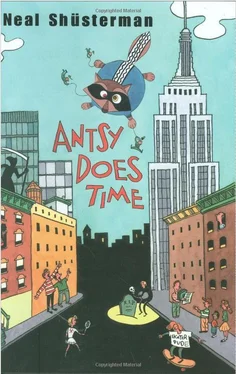
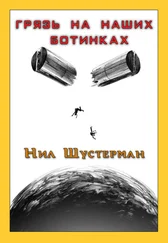
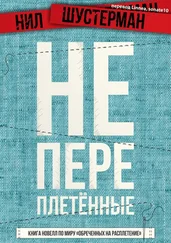
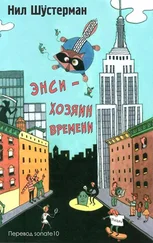


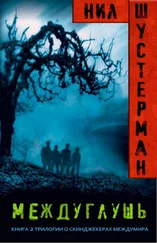
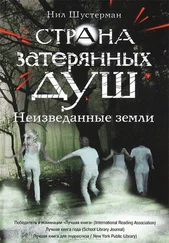
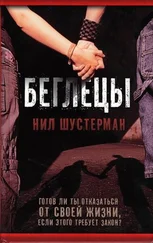


![Нил Шустерман - Жнец [litres]](/books/418707/nil-shusterman-zhnec-litres-thumb.webp)